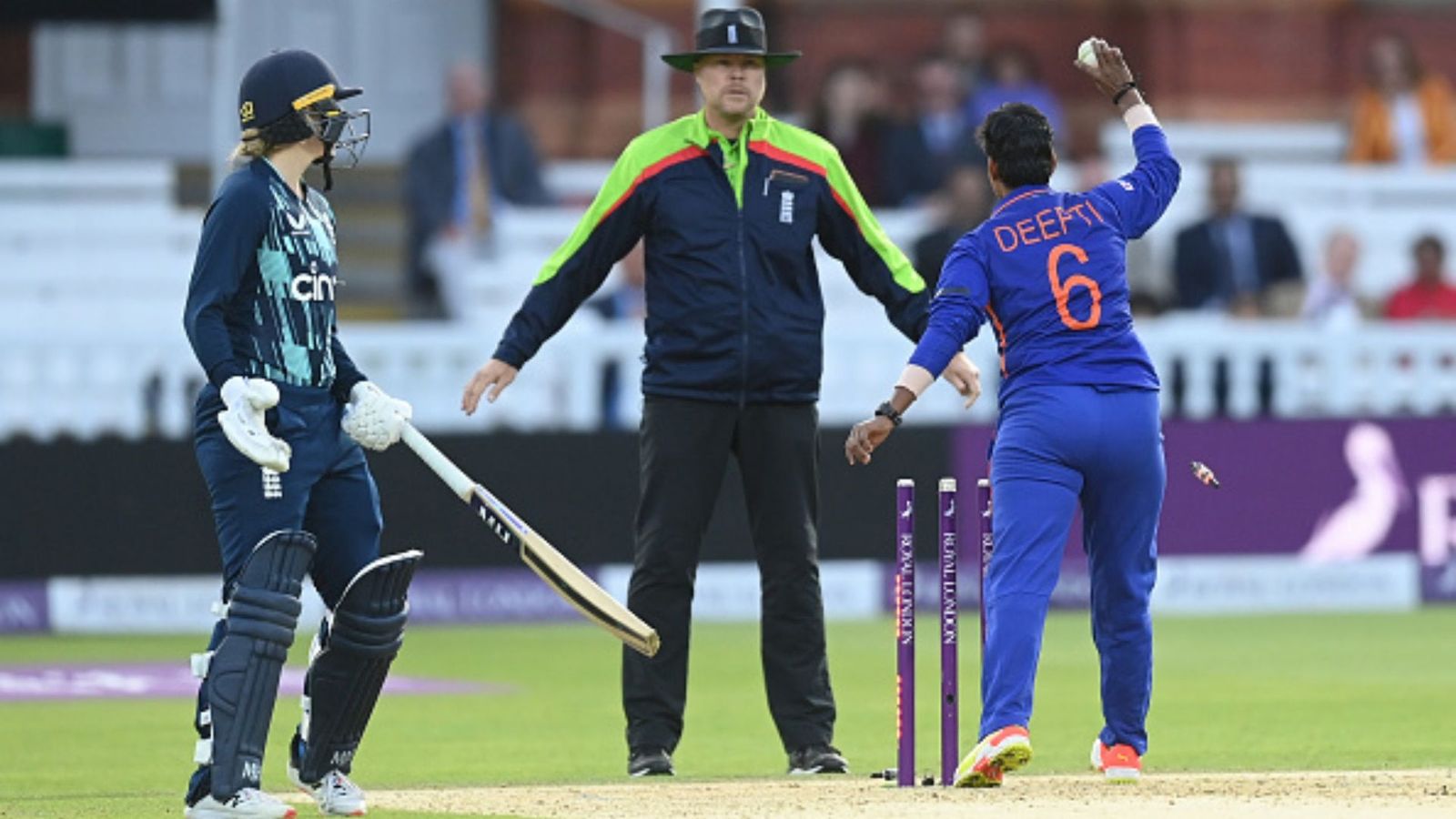Indian star all-rounder Deepti Sharma was in the centre of a storm in the final ODI between England and India after she ran out Charlie Dean in the non-striker's end.
The incident, which took place in the 44th over of the match, saw Sharma remove the bails off the wicket when Dean was backing up. Sharma stopped in the middle of her bowling action to run out the batter on 47 runs, with the target just 17 runs away. The dismissal is perfectly legal according to the laws of the game.
The incident sparked controversy which left the cricket pundits divided in opinions.
Meanwhile, India's ace spinner Ravichandran Ashwin on Sunday (September 25) said wickets ought to be credited to bowlers' accounts when they run out batters at the non-striker's end for backing up too far, as it requires 'presence of mind'.
Going by the ICC manual, India all-rounder Deepti Sharma's run out of Charlie Dean in the third ODI was perfectly legal, but it still divided opinion with many backing it while Englishmen, such as Stuart Broad, James Anderson and Sam Billings, expressing their annoyance.
Joining in the debate Ashwin, who has often objected to these kind of run outs being termed 'Mankading' (named after former India player Vinoo Mankad), recommended a bravery award for the bowler.
Responding to a tweet by English cricketer Billings who asked Anderson, "Imagine how many more wickets you could get James," Ashwin wrote on his Twitter handle, "In fact that's a great idea.
"How about awarding that wicket to the bowler for "presence of mind" under immense pressure and of course knowing the social stigma that he/she would have to deal with post doing it. How about a bravery award to go with it too." The Indian women's team beat England at Lord's to sweep the three-match series and give a fitting farewell to the legendary Jhulan Goswami on Saturday.
However, bowler Deepti running out Dean to claim England's last wicket, after the batter had backed up, led to a controversy.
Dean was backing up when Sharma stopped in the middle of her bowling action to run out the batter for 47 runs with the target just 17 runs away. The dismissal is perfectly legal according to laws of the game.
Earlier, Ashwin tweted, "Why the hell are you trending Ashwin? Tonight is about another bowling hero @Deepti_Sharma06."
Sent into bat, India were all out for a miserly 169, with it seemingly looking like a bitter-sweet end to Jhulan's career. But the Indians managed to eke out a win as Dean was adjudged run out for backing up. England was reeling at 65 for seven and then 103 for eight before Dean worked hard to bring her team back into the match.
While it has always been a legal mode of dismissal, recently the ICC, while modifying the playing conditions, moved this kind of dismissal from 'unfair play' to 'run out'.
The MCC Law 41.16.1 states: "If the non-striker is out of his/her ground at any time from the moment the ball comes into play until the instant when the bowler would normally have been expected to release the ball, the non-striker is liable to be run out.
"In these circumstances, the non-striker will be out run out if he/she is out of his/her ground when his/her wicket is put down by the bowler throwing the ball at the stumps or by the bowler's hand holding the ball, whether or not the ball is subsequently delivered."
The sensational Indian women's cricket team scripted a historic feat by claiming their first ever ODI series whitewash on English soil and gave a perfect farewell to their pace spearhead Jhulan Goswami.


